O Licence Mistakes to Avoid: What Every Goods Vehicle Operator Should Know
If you’re running a business that uses goods vehicles, holding an O licence — even a restricted one — comes with serious legal responsibilities.
Every year, operators lose their licence simply because they misunderstood the rules. And the consequences can be severe: vehicles off the road, contracts lost, and in some cases, investigations by the Traffic Commissioner.
In this article, we’ll walk you through common mistakes operators make, especially those using a restricted O licence, and how to avoid getting your licence revoked. Whether you’re still figuring out how to apply for an O licence, or just want peace of mind that you’re doing everything right — you’re in the right place.
Read our Restricted O Licence compliance page
Contact us for personal guidance
1. Thinking a Restricted O Licence Is Less Serious
It’s a common misconception. Many small operators assume a restricted O licence means fewer rules. But the truth is, you’re still bound by most of the same regulations as standard licence holders — especially when it comes to compliance and vehicle safety.
A restricted licence only allows you to carry your own goods — nothing for hire or reward.
- No subcontracted haulage
- No third-party goods, even as a favour
- No profit from transport services
Using your licence outside of its legal scope is one of the fastest ways to have it revoked.
2. Not Preparing for an Audit
Even restricted licence holders can be audited by the DVSA. And when they arrive, they’re looking for more than just clean vehicles. You’ll need to show:
- 15+ months of maintenance records
- Regular driver defect checks
- Evidence of proper parking and vehicle use at your operating centre
- Notification of any changes to your business (ownership, location, etc.)
3. Skipping the Financial Standing Basics
Even with a restricted licence, you need to prove that your business can financially support safe vehicle operation.
While the exact amount varies, you’ll still need to show that you can afford:
- Routine maintenance
- Unexpected repairs
- Basic running costs for each vehicle
When learning how to apply for an O licence, prepare your business bank statements and servicing contracts in advance.
4. Letting the Licence Lapse
Restricted O licences aren’t “set and forget.” They require:
- Timely renewal
- Ongoing recordkeeping
- Proactive updates if your operations change
And if you’re expanding or evolving your business, your restricted licence might not be enough.
For example, if you:
- Start carrying goods for someone else
- Begin earning from your transport
- Use drivers not listed on your licence
Then it’s likely time to explore a goods vehicle operator licence under the Standard category.
5. Hoping for the Best Instead of Getting Help
Compliance can feel overwhelming, especially if you’re trying to run your business day-to-day. That’s where we come in.
At Logan Logistics, we specialise in helping operators:
- Understand what licence they need
- Stay compliant with changing laws
- Pass audits with confidence
- Avoid enforcement action from the DVSA
We’ve seen operators with just 1 or 2 vehicles fall into issues simply because no one explained things properly. You don’t need to go it alone.
Ready to Stay Compliant?
Visit our full Restricted O Licence page
Contact our compliance team for a free consultation.





